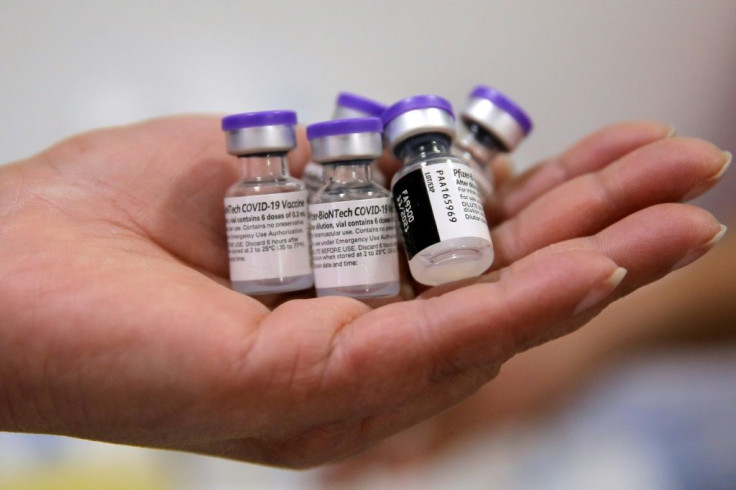Pfizer COVID-19 Vaccine Efficacy Drops To 84% After 6 Months, Booster Effective For Delta
KEY POINTS
- The Pfizer vaccine has a 96% effectiveness within two months of the second dose
- The efficacy rate drops to 84% four to six months after the second dose
- Multiple health agencies have dismissed the need for a third dose at this time
The effectiveness of the COVID-19 vaccine developed by Pfizer-BioNTech declines about four to six months after the second dose, Pfizer’s CEO Albert Bourla said Wednesday.
During an appearance on CNBC’s “The Exchange,” Bourla revealed a new company-funded study that found Pfizer’s vaccine to have 96.2% effectiveness within two months of the second dose. The efficacy rate drops by 6% every two months and was only around 84% effective four to six months after the patient is given the second dose.
The study, which was published on preprint server medRxiv, is yet to be peer-reviewed. It involved more than 44,000 people across the United States and other countries and comes as Pfizer clashes with U.S. health officials over whether a booster shot is needed to increase protection against COVID-19.
“The good news is that we are very, very confident that a third dose, a booster, will take up the immune response to levels that will be enough to protect against the delta variant,” Bourla said, according to CNBC. The highly contagious variant now accounts for more than 80% of COVID-19 cases in the U.S.
The CEO also announced that the drugmaker would formally submit its data to U.S. regulators by mid-August to make a case about the benefits of a third dose.
Earlier this month, Pfizer announced its plans to seek approval for a third vaccine dose from the U.S. Food and Drug Administration, citing recent evidence from Israel that showed waning protection six months after the second dose.
"It's a small data set, but I think the trend is accurate: Six months out, given that Delta is the most contagious variant we have seen, it can cause infections and mild disease," Pfizer’s chief scientific officer Mikael Dolsten said at the time, according to Reuters.
However, the FDA and the CDC later issued a joint statement that dismissed the need for a third dose.
“Americans who have been fully vaccinated do not need a booster shot at this time. FDA, CDC, and NIH are engaged in a science-based, rigorous process to consider whether or when a booster might be necessary,” the joint statement read.
On Wednesday, Dr. Kate O’Brien, the director of immunization for the World Health Organization, took the FDA and the CDC’s position on a booster vaccine, saying that it does not recommend a third dose at this time.

© Copyright IBTimes 2025. All rights reserved.






















